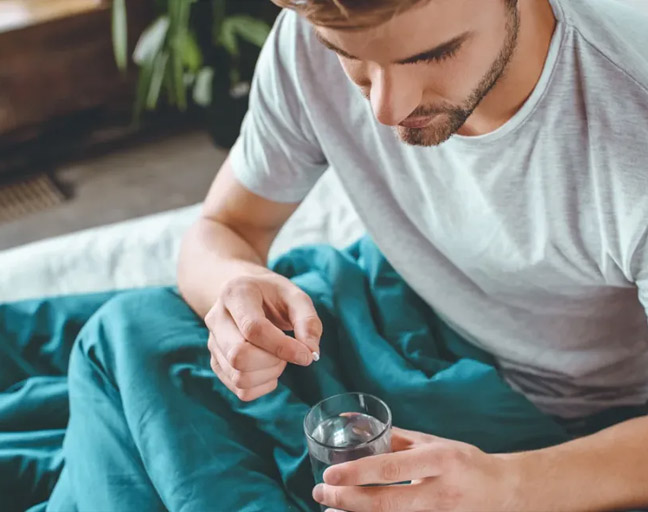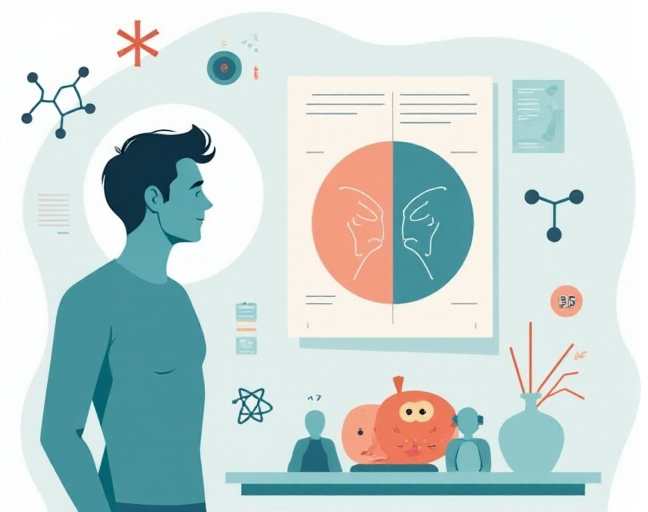Birth control pills are designed for women, preventing pregnancy by stopping an egg from attaching to the uterine lining. These pills contain estrogen and progestin, which alter a woman’s menstrual cycle. While these pills are not meant for men, some might take them either by accident or on purpose to adopt more feminine characteristics. But what actually happens if a man takes them? Let’s take a look at the effects.
1. Sexual Functioning
Birth control pills contain female hormones that can affect a man’s testosterone levels. If a man takes them regularly, he may experience reduced sexual functioning. This could include:
- Difficulty achieving or maintaining an erection
- Lower sperm count
- Reduced sex drive
- Shrinking of the testes
Additionally, men might notice breast tissue growth and darkening of the skin around their nipples. It’s important to note that these changes are linked to the hormonal shift caused by the pill.
2. Physical Appearance
Testosterone plays a huge role in building muscle and maintaining bone mass in men. Birth control pills can interfere with these processes. Over time, a man may experience:
- Muscle loss, especially in larger muscle groups like the chest, arms, and legs
- A decrease in bone density, which can resemble osteoporosis
- Thinner body and facial hair
These changes stem from the pills’ influence on testosterone, making it less effective at its job.
3. Mental State
When a man’s body is flooded with female hormones, it can impact his mental state. Many men tend to have more assertive or aggressive tendencies, and the increase in estrogen can lead to a more docile or calm mood. However, some men may also experience:
- Insomnia or trouble sleeping
- Confusion or difficulty focusing
- Depression, especially when physical changes occur unexpectedly
These emotional shifts are often tied to the body’s response to the hormone imbalance.
4. Health Risks
Taking birth control pills can increase the risk of certain health issues for men. For instance:
- A higher risk of blood clots, especially if the person smokes
- Possible enlargement of the prostate, raising concerns about prostate cancer
- Increased chances of gallbladder and liver disease
Although some studies suggest that birth control pills might reduce the risk of heart attacks, more research is needed in this area.
Other Ways to Embrace Femininity
Not all men who take birth control pills are looking for a drastic change. Many want to explore their feminine side, but there are safer ways to express femininity without using hormonal treatments.
1. Physical Expression
Being feminine isn’t just about physical traits like curves or soft skin. It’s about how you carry yourself. Clothes, mannerisms, makeup, and even hairstyles can help express femininity. These elements are simple, non-medical ways to embrace and showcase your gender identity.
2. Community and Support
Feeling comfortable in your gender identity is often enhanced by surrounding yourself with like-minded people. Finding supportive friends or engaging in online communities can help build your confidence and create a space where you can freely express yourself.
3. Hobbies and Interests
There’s no one-size-fits-all definition of what’s “feminine.” For some, engaging in activities that have traditionally been associated with women can be empowering. Whether it’s crafting, cooking, or even sports, anything that makes you feel connected to your feminine side counts.
4. Seeking Professional Guidance
Exploring your gender identity can be a complex journey, and it’s okay to ask for help. Speaking with a therapist or counselor can help you better understand your feelings. If you decide to transition physically, whether through hormone therapy or surgery, professional guidance can be incredibly valuable.
A Personal Story: Transitioning with the Pill
Here’s a first-person account of someone who took birth control pills as part of their transition:
“I’m a trans woman, and when I started transitioning from male to female, I used birth control pills. The effects were exactly what you might expect from an influx of female hormones. My breasts began to develop, and my body hair started to disappear. My body became softer, and fat started accumulating in ways that gave me more feminine curves. Since I didn’t have high testosterone to begin with, these changes were quite noticeable.
At first, I struggled with my emotions—depression and anxiety were a part of the journey. However, one thing that didn’t change was my voice! I had to work with a speech therapist to adjust that.”
Final Thoughts
While birth control pills are designed for women, men who take them might see some significant changes, both physically and mentally. However, if you’re exploring your gender identity, there are less risky ways to express yourself. Whether through clothing, community support, or seeking professional help, there are plenty of safe and fulfilling options out there.


